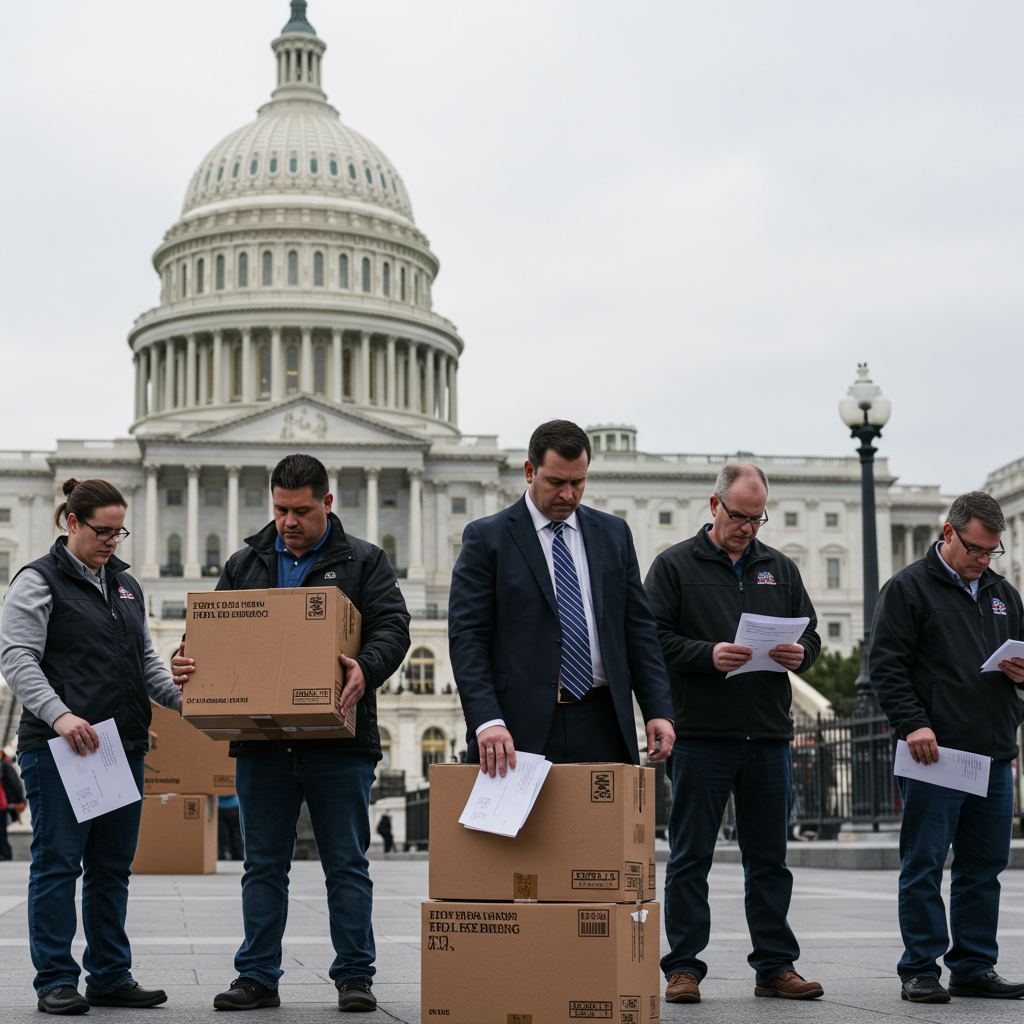Former President Donald Trump delivered a contentious and often unscripted address at the United Nations General Assembly, challenging global institutions and outlining his “America First” vision. His remarks, punctuated by technical malfunctions and spontaneous digressions, sparked widespread reactions. Trump used the platform to castigate the UN, dismiss climate change as a “con job,” and sharply criticize international immigration policies, setting a confrontational tone for global discourse.
Trump Challenges Global Institutions: A Scrutiny of the UN
Speaking at the 80th anniversary session of the UN General Assembly, President Trump launched a direct assault on the United Nations itself, openly questioning its very purpose and effectiveness. He lamented the organization’s perceived inability to resolve complex global issues, asserting that for the most part, the UN merely offered “empty words” that “don’t solve war.” Trump famously claimed personal credit for single-handedly ending seven “unendable wars” without UN assistance, facetiously suggesting he deserved a Nobel Peace Prize for his life-saving efforts.
The former president also highlighted a malfunctioning teleprompter and a broken escalator at the UN building, framing these technical glitches as symbolic of a “broken institution.” He voiced past grievances, including the UN’s rejection of his $500 million renovation bid years ago, which he claimed led to a more expensive and “far inferior” alternative. Despite these sharp criticisms, in a subsequent meeting with UN Secretary-General António Guterres, Trump’s tone softened slightly. He affirmed that the United States remained “100% behind the United Nations,” acknowledging its “great opportunity for peace,” even while noting areas of disagreement. This dual approach underscored his complex relationship with multilateralism, often marked by skepticism yet recognition of its potential.
“Going to Hell”: Trump’s Stark Warning on Immigration Policies
A significant portion of Trump’s UN General Assembly address focused on immigration, where he delivered a scathing critique of “open borders” and the migration policies adopted by various nations, particularly in Europe. He warned that countries pursuing such policies were “going to hell,” accusing them of “destroying your heritage” by being “nice” and “politically correct.” Trump contended that allowing entry to people with whom a nation shares “nothing in common” inevitably leads to its failure, suggesting it was “funding an assault on Western countries” by destroying the “fabric of the West.”
He touted his administration’s stringent approach in the United States, claiming that “detaining and deporting everyone who crossed the border” had successfully halted “uncontrolled migration.” This stance, often referred to as “secure borders” or “strict immigration enforcement,” stood in stark contrast to the more accommodating policies he observed in Europe. Trump urged European leaders to adopt similar measures, believing they were essential for national security and cultural preservation. His comments reflected a deep-seated concern over the socio-economic impacts of unchecked migration and a firm belief in national sovereignty in controlling borders.
Dismissing Environmental Concerns: The “Climate Con Job”
In one of the most controversial moments of his Trump UN speech, the former president unequivocally dismissed climate change rhetoric as “the greatest con job ever perpetrated on the world.” He rejected the overwhelming scientific consensus that climate change is real, primarily caused by fossil fuel pollution, and already manifesting in extreme weather events. Trump branded previous predictions of global environmental catastrophe as “wrong” and the product of “stupid people.” He pointed to an imagined shift from “global warming” to “climate change” as evidence of a hoax, suggesting the term was adopted so “they can’t miss.”
Trump also lambasted “brutal green energy policies,” arguing they were not primarily designed to help the environment. Instead, he claimed their main effect was to “redistribute manufacturing and industrial activity from developed countries” adhering to “insane rules” to “polluting countries that break the rules and are making a fortune.” He championed “clean, beautiful coal” and offered abundant, affordable U.S. energy supplies globally, contrasting this with what he perceived as costly and ineffective renewable energy sources like solar and wind. Furthermore, he labeled the concept of a “carbon footprint” a “hoax made up by people with evil intentions,” even taking a jab at former President Barack Obama’s use of Air Force One. However, contemporary energy reports, as highlighted by external analyses, indicate that renewables have driven down electricity costs in the US, making them the most cost-effective forms of new-build energy on an unsubsidized basis.
Navigating Global Hotspots: Ukraine, Gaza, and NATO Directives
Trump’s address touched upon ongoing global conflicts, offering strong opinions on the situations in Ukraine and Gaza, and the role of NATO. Regarding the Russia-Ukraine war, he expressed frustration over its prolonged nature, calling it a “disaster” that was “not making Russia look good.” While acknowledging Ukraine’s effective defense, he directed significant criticism at European countries for their continued purchases of Russian energy, labeling it “embarrassing” and a primary source of funding for Russia’s war chest. He even suggested he might personally intervene to persuade Hungarian Prime Minister Viktor Orbán to halt his country’s Russian oil purchases.
On the sidelines of the General Assembly, in a meeting with Ukrainian President Volodymyr Zelenskyy, Trump made a provocative assertion: NATO countries “should shoot down Russian aircraft that enter their airspace.” This statement came amidst recent Russian incursions into Estonian and Polish airspace, prompting emergency NATO meetings. While initially stopping short of committing the U.S. to such actions, he emphasized American strength within NATO.
Regarding the Israel-Hamas conflict, Trump condemned several Western allies for formally recognizing a Palestinian state before the General Assembly. He argued this would “embolden Hamas” and serve as a “reward for these horrible atrocities, including October 7,” especially as Hamas had “repeatedly rejected reasonable efforts to make peace.” He demanded the immediate release of all remaining hostages and the return of deceased hostages’ bodies, rejecting any partial release deals. This view was echoed by US Ambassador to the UN Mike Waltz, who criticized the Security Council for holding a meeting on the “Palestinian question” during Rosh Hashanah, knowing it would exclude Israel. Despite Trump’s stance, several Western nations, including the UK, Canada, Australia, and France, had recently recognized a Palestinian state, with Italy’s Giorgia Meloni also signaling openness, albeit with conditions.
Economic Strategy and Key Bilateral Engagements
Trump reiterated his administration’s use of tariff policy as a mechanism to defend the nation’s “sovereignty and security.” He advocated for “fair and reciprocal” trade, claiming that countries which had “broke the rules” had negatively impacted those that followed them. This economic policy was presented as a defense mechanism to ensure the trade system worked for everyone and remained sustainable.
Beyond his critiques, Trump engaged in several key bilateral meetings. He met with Argentina’s President Javier Milei, offering his “full endorsement” for Milei’s reelection and praising his efforts to stabilize Argentina’s economy, despite an existing “mess” from previous administrations. He also discussed working with the U.S. Treasury on Argentina’s debt. A brief, seemingly cordial encounter with Brazil’s President Luiz Inácio Lula da Silva was also noted, where Trump claimed “excellent chemistry” despite imposing a 50% tariff on Brazil. He also suggested he could persuade Lula to work more closely with the U.S., warning that Brazil would “fail” without American cooperation. These interactions underscored his transactional approach to international relations, often blending personal diplomacy with strong economic pressures.
Reactions and Notable Digressions
Trump’s Trump UN speech drew varied reactions. London Mayor Sadiq Khan’s spokesperson called Trump’s comments “appalling and bigoted” after the former president falsely claimed London was moving toward “Sharia law” under Khan’s leadership. Trump also asserted that Christianity was “the most persecuted religion on the planet today,” calling for the protection of religious liberty and free speech.
The off-script nature of the address, largely due to the malfunctioning teleprompter, led to numerous tangents. These included discussions about crime reduction in U.S. cities, his past efforts to renovate UN headquarters, and the efficacy of windmills, punctuated by idiosyncratic statements like, “We don’t want cows anymore. I guess they want to kill all the cows.” He also made observations about garbage dumping in Asia. While the international delegates offered minimal audible reaction, save for laughter at his anecdote about meeting Lula, Trump significantly exceeded the traditional 15-minute limit for leaders’ speeches. Despite his claims of economic prosperity for the U.S. with inflation defeated and stock market up, external reports indicated these assertions were contradicted by contemporary data.
Frequently Asked Questions
What were Trump’s main criticisms of the UN during his speech?
During his Trump UN speech, former President Trump openly questioned the United Nations’ purpose and effectiveness. He accused the organization of largely producing “empty words” that fail to resolve global conflicts, contrasting it with his own perceived successes in ending wars. He also highlighted physical malfunctions at the UN building, like a broken teleprompter and escalator, as symbolic of the institution’s broader inefficiencies and a past grievance regarding a rejected renovation bid. Despite these criticisms, he later affirmed U.S. support for the UN’s potential for peace.
How did Trump’s views on climate change align with scientific consensus, and what was his proposed alternative?
Trump’s views on climate change during his address directly contradicted the overwhelming scientific consensus. He famously labeled climate change “the greatest con job ever perpetrated on the world,” dismissing scientific predictions as “wrong” and the product of “stupid people.” He criticized “brutal green energy policies,” claiming they were economically detrimental and served to redistribute manufacturing to polluting nations. His proposed alternative championed “clean, beautiful coal” and the abundant, affordable energy supplies from the U.S., rejecting the need for carbon emission reductions and calling the concept of a “carbon footprint” a “hoax.”
What actions did Trump suggest NATO allies should take regarding Russian aircraft?
During his appearance at the UN General Assembly, President Trump asserted that NATO member countries “should shoot down Russian aircraft that enter their airspace.” This strong directive came in the wake of recent incidents where Russian drones and fighter jets violated the airspace of NATO allies like Estonia and Poland. While Trump did not explicitly state the United States would join such efforts, he emphasized a firm stance against Russian airspace incursions, advocating for decisive action to defend NATO sovereignty.
President Trump’s address at the UN General Assembly marked a significant moment in global political discourse, characterized by his trademark directness and a consistent challenge to established norms. His criticisms of global institutions, firm stance on immigration, and dismissal of environmental concerns reinforced his “America First” philosophy. The speech, with its blend of prepared remarks and spontaneous digressions, offered a clear articulation of his approach to international relations, leaving a lasting impression on the international community and highlighting deep divisions in how global challenges are perceived and addressed.



